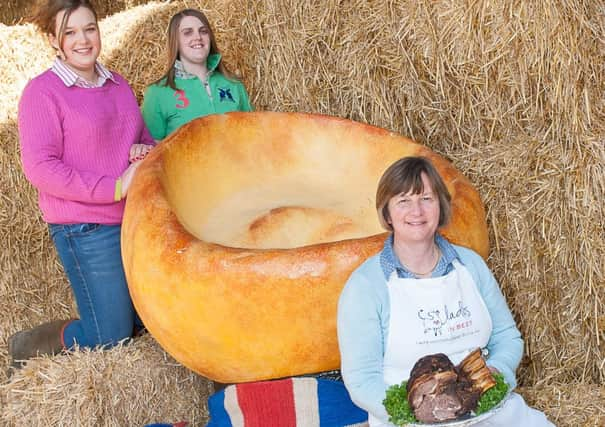Shrinking beef herd as farmers look elsewhere


While industry figures warn that the trend is accelerating, it is proving no deterrent for 100 female beef farmers who are refusing to submit to the shrinking of the sector.
During Great British Beef Week, which runs from April 23 to May 3, the woman - members of the Ladies in Beef group - will be professing the virtues of British beef to the public in an attempt to boost sales.
Advertisement
Hide AdAdvertisement
Hide AdBeef farmer Rosey Dunn, who farms at Stockton on the Forest near York, is the public face of the campaign and is one of the original members of the Ladies in Beef movement which started in 2011.
She said: “We’ve lost more than 200,000 British beef breeding cows in the last 10 years and over 100,000 in the last three years alone. That’s a lot of empty fields.
“UK beef farmers, like much of the farming industry, are facing tough times at present, not least because of the decline of the suckler herd.”
Next week, she and other Ladies in Beef members will be championing beef products labelled with the Red Tractor logo - a guarantee to shoppers that products that carry the label are made to high welfare standards in Britain.
Advertisement
Hide AdAdvertisement
Hide Ad“Beef is an absolute power-pack of vitamins and minerals which are all vital for health. Not only is it nutrient dense, it is a major source of protein,” Mrs Dunn said.
“By joining together as an industry to promote Red Tractor beef we hope to have a positive impact on sales and raise funds for our own industry charity.”
The wane in the number of beef cattle across the country is down to economic factors, she said, not least changes in the ways farming payments were awarded to farmers from the European Union.
“We used to be paid to keep livestock through the Common Agricultural Policy (CAP) and when the market price hasn’t been good - and we have seen that it can be quite volatile - people have taken the opportunity to sell up and just like with dairy, when people go out they never go back.
Advertisement
Hide AdAdvertisement
Hide Ad“The last Single Payment Scheme moved to area-based payments so there was no requirement to keep any livestock and farmers have had choices to make.
“It’s a lot of work and if it’s doesn’t pay then you will get people who will look at other options.
“When the CAP was set up it was in order to provide cheap food and we have lost sight of that along the way.”
When farmers suffer from a sustained downturn in prices the reprecussions for their businesses can be severe.
Advertisement
Hide AdAdvertisement
Hide AdWelfare charity, the Royal Agricultural Benevolent Institution (RABI) provides help for around 2,000 farming families in financial difficulty each year and it has been chosen as the charitable partner for Great British Beef Week.
Suzy Deeley, the charity’s development manager, said: “We want people to get behind the British beef industry and what it has to offer.
“All the money we raise will go directly to helping farming families in financial difficulty – the people who we rely upon to produce the food we eat.”
To support RABI during Great British Beef Week, text RABI18 followed by the £ sign and the amount you wish to donate to 70070 (e.g. RABI18£5).
Advertisement
Hide AdAdvertisement
Hide AdAgricultural students at Bishop Burton College are helping Ladies in Beef to launch Great British Beef Week.
The college, near Beverley, is developing its own beef unit, producing beef from both dairy cross and pure-bred beef cows.